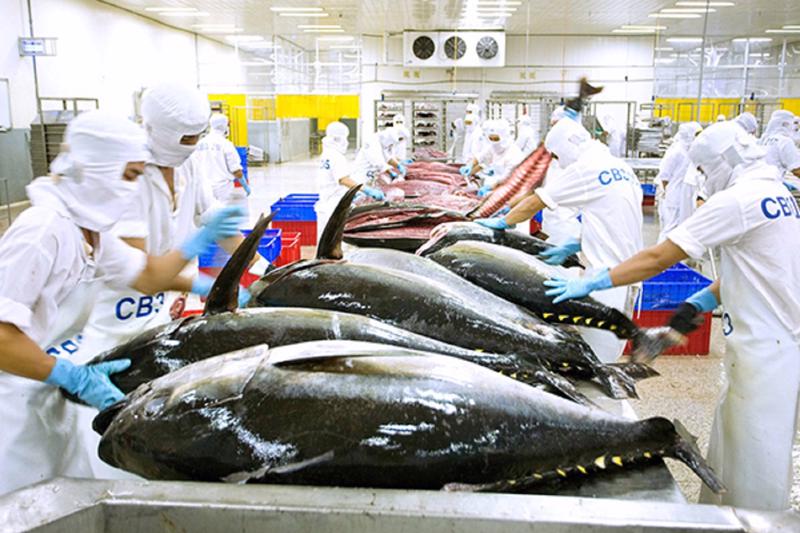Determined to address the longstanding blight of illegal fishing on its maritime reputation, Vietnam's government on April 22 unveiled an ambitious plan to combat illegal, unreported, and unregulated (IUU) fishing practices.
The resolution 52/NQ-CP dated April 22 is a another response to international criticism, signals a potential turning point for the Southeast Asian nation's fisheries industry.
For years, Vietnam has struggled to shake off its image as a haven for IUU fishing. The European Commission issued the country with a "yellow card" warning in 2017, indicating its failure to comply with international standards and potentially leading to a ban on its seafood exports to the lucrative EU market.
This warning exposed weaknesses in Vietnam's fisheries management, including poor monitoring of fishing vessels and inadequate traceability of seafood products.
Following the receipt of a "yellow card" in 2017, Vietnam swiftly responded to the recommendations put forth by the EC. The nation promptly enacted the Fisheries Law and implemented a system for registering fishing vessels, as well as issuing fishing licenses, spanning from central to local administrative levels.
Government outlines decisive measures
The Vietnamese government's new resolution, underpinned by a directive from the ruling Communist Party, outlines a range of measures to address these shortcomings.
Key among these is a commitment to improve monitoring, control, and surveillance of fishing vessels, both at sea and in port. The government will invest in modern technologies and strengthen the capacity of its fisheries enforcement agencies.
Crucially, Vietnam also aims to ensure strict traceability of seafood products throughout the supply chain. This will help prevent illegally caught fish from being mixed with legitimate catches and laundered into export markets.
The government promises to crack down on seafood fraud and enforce international standards for catch certification. This should bolster its claim that no illegal seafood makes it into international trade.
Beyond enforcement, the resolution recognizes the need to address the root causes of IUU fishing. Plans are underway to overhaul Vietnam's fisheries policies with a focus on sustainability.
The government aims to support the development of sustainable aquaculture to reduce pressure on wild fish stocks. It also plans to help fishermen transition to new livelihoods to lessen their dependence on dwindling wild capture fisheries.
Global and regional implications
Vietnam's efforts to combat IUU fishing have implications beyond its own shores. As a major seafood exporter, with total export revenues reaching roughly $9 billion in 2023, Vietnam's actions impact global markets and conservation efforts.
Success in curbing illegal practices could enhance Vietnam's standing as a responsible fishing nation, improving its access to lucrative markets and potentially easing the pressure on overexploited fish stocks.
Regionally, Vietnam's efforts could also inspire a wave of cooperation on combating IUU fishing. Southeast Asia is a hotspot for illegal fishing, with dire consequences for marine ecosystems and the livelihoods of coastal communities. A strong example from Vietnam could push other countries to step up their fight and contribute to a healthier marine environment for the region.
Challenges ahead
While the new resolution marks a promising shift in policy, industry experts agree Vietnam faces significant challenges in implementation. Overcoming corruption within the fisheries sector and ensuring effective enforcement of regulations on the ground will be crucial.
Additionally, Vietnam must balance the need for increased seafood production to meet rising global demand with the imperative of sustainability, requiring careful management of aquaculture development.
The road ahead won't be easy, but with its new, comprehensive crackdown, Vietnam is demonstrating a genuine commitment to combating IUU fishing, a commitment that could transform its fisheries industry and secure a sustainable future for its marine resources.









 Google translate
Google translate